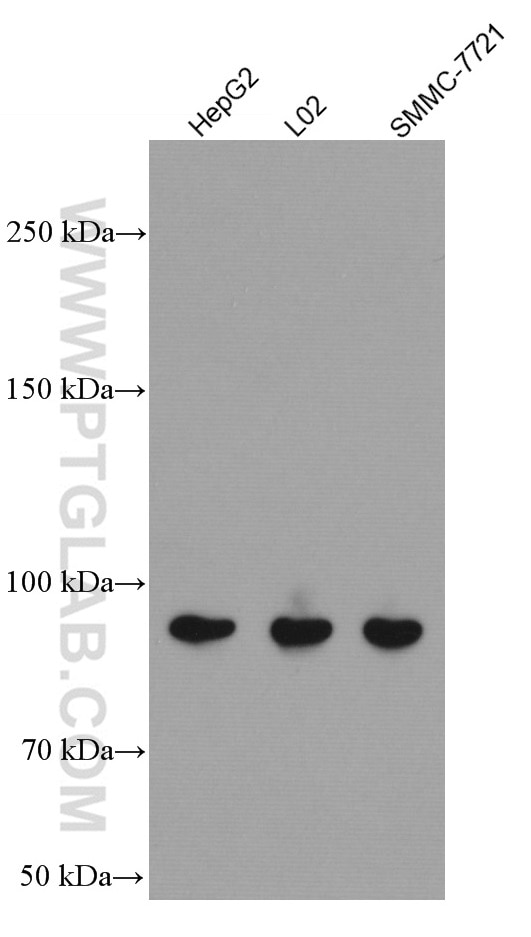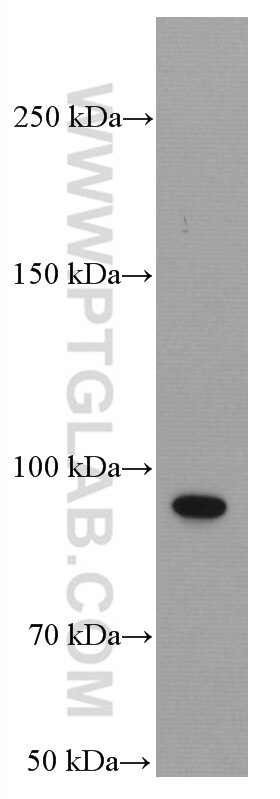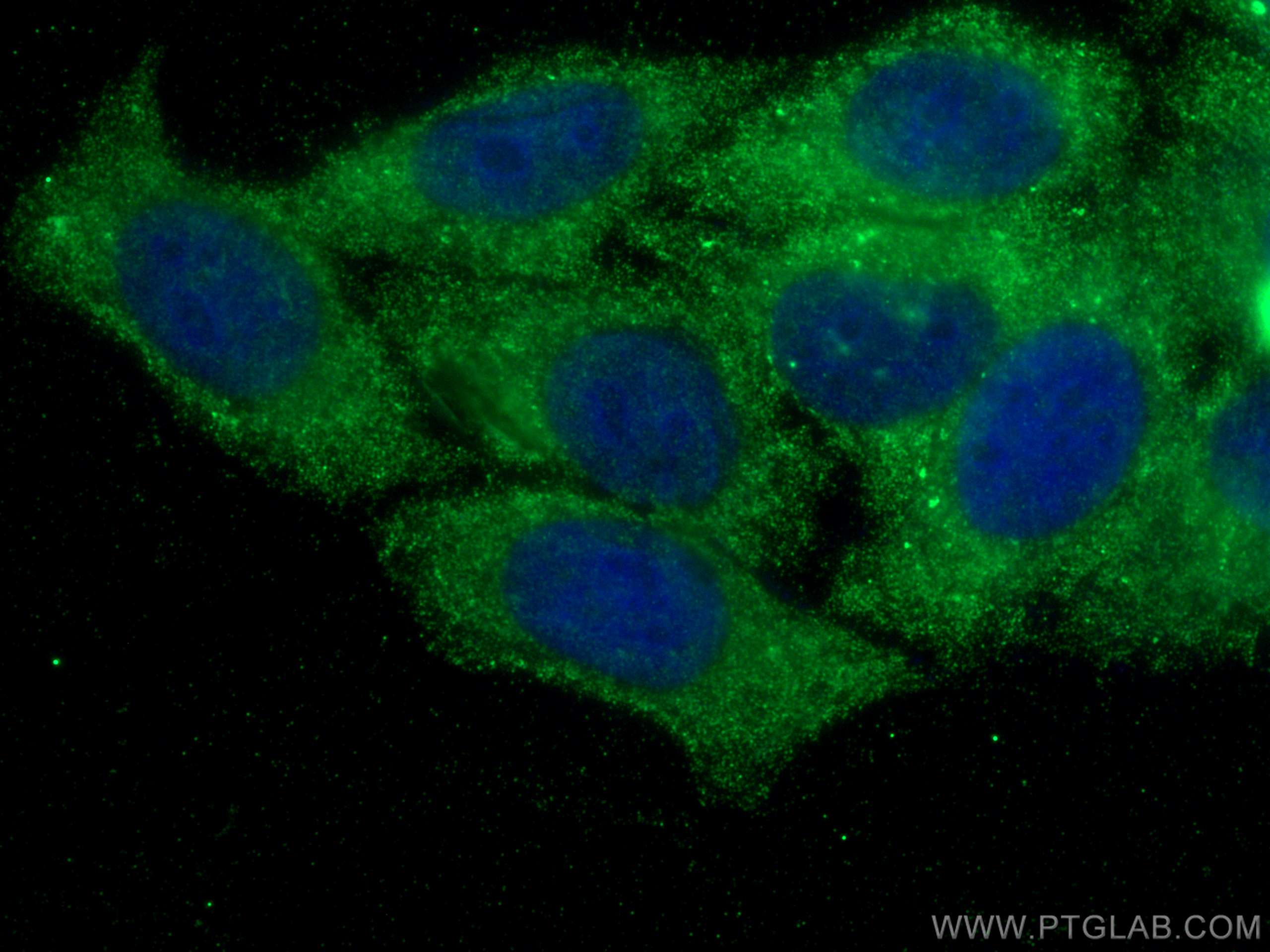Validation Data Gallery
Tested Applications
| Positive WB detected in | HepG2 cells, L02 cells, SMMC-7721 cells |
| Positive IF/ICC detected in | HepG2 cells |
Recommended dilution
| Application | Dilution |
|---|---|
| Western Blot (WB) | WB : 1:1000-1:4000 |
| Immunofluorescence (IF)/ICC | IF/ICC : 1:200-1:800 |
| It is recommended that this reagent should be titrated in each testing system to obtain optimal results. | |
| Sample-dependent, Check data in validation data gallery. | |
Product Information
66752-1-Ig targets PLA2G4D in WB, IF/ICC, ELISA applications and shows reactivity with Human samples.
| Tested Reactivity | Human |
| Host / Isotype | Mouse / IgG1 |
| Class | Monoclonal |
| Type | Antibody |
| Immunogen | PLA2G4D fusion protein Ag4178 相同性解析による交差性が予測される生物種 |
| Full Name | phospholipase A2, group IVD (cytosolic) |
| Calculated molecular weight | 818 aa, 92 kDa |
| Observed molecular weight | 92 kDa |
| GenBank accession number | BC034571 |
| Gene Symbol | PLA2G4D |
| Gene ID (NCBI) | 283748 |
| RRID | AB_2882098 |
| Conjugate | Unconjugated |
| Form | Liquid |
| Purification Method | Protein G purification |
| UNIPROT ID | Q86XP0 |
| Storage Buffer | PBS with 0.02% sodium azide and 50% glycerol , pH 7.3 |
| Storage Conditions | Store at -20°C. Stable for one year after shipment. Aliquoting is unnecessary for -20oC storage. |
Background Information
PLA2G4D(Cytosolic phospholipase A2 delta) belongs to the phospholipase A2 enzyme family,catalyzes the hydrolysis of glycerophospholipids at the sn-2 position and then liberate free fatty acids and lysophospholipids.PLA2G4D expression is specifically upregulated in the upper epidermis of patients with inflammatory skin diseases(PMID:14709560).
Protocols
| Product Specific Protocols | |
|---|---|
| WB protocol for PLA2G4D antibody 66752-1-Ig | Download protocol |
| IF protocol for PLA2G4D antibody 66752-1-Ig | Download protocol |
| Standard Protocols | |
|---|---|
| Click here to view our Standard Protocols |


